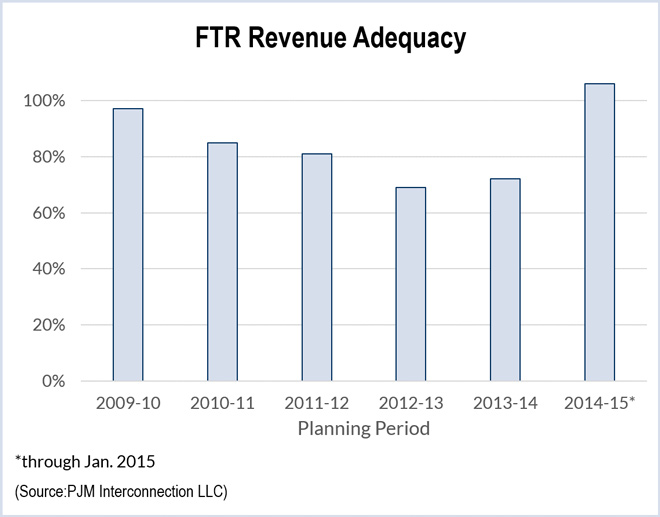By Suzanne Herel
WILMINGTON, Del. — Old Dominion Electric Cooperative introduced a last-ditch effort to reach consensus on a redesign of the financial transmission rights and auction revenue rights processes Thursday, seeking a vote on a proposal combining recommendations from PJM and the Independent Market Monitor.
ODEC’s Steve Lieberman introduced the proposal to the Markets and Reliability Committee, prompted by a discussion at the May MRC meeting over whether the deadlocked FTR/ARR Senior Task Force should be disbanded. (See Move to Disband FTR Task Force Splits PJM Members.)

As a result, however, Lieberman said, Stage 1B and Stage 2 ARR allocations have been “nearly eliminated.”
“In ODEC’s mind, this highlights the need for additional transmission development.”
His proposal, which will be brought to a vote at the July MRC meeting, incorporates three elements, which PJM had presented to the task force as package 22.
The first, drawn from a PJM staff proposal regarding the Stage 1A 10-year process, would escalate current ARR results using a zonal load forecast growth rate of +1.5%.
The other two elements were proposed by the Monitor and supported by PJM. It would change the method of reporting the monthly payout ratio so that any negative target allocations are included as revenue, slightly increasing the reported payout ratio.
It would also treat each FTR individually, eliminating the netting of positively and negatively valued FTR positions in a portfolio prior to determining positively valued FTR payout ratios.
Prospects Cloudy
Although the odds against the package winning two-thirds support in a sector-weighted MRC vote may be steep — none of the 12 packages brought to votes at the task force won even a simple majority vote — ODEC did receive some support Thursday.
Market Monitor Joe Bowring said he supported the proposal but said it was only a start in solving the issue.
PJM also endorsed the plan. “PJM would be supportive of moving forward with this particular package,” said Stu Bresler, vice president of market operations.
Carl Johnson, representing the PJM Public Power Coalition, agreed. “This is the best way to move forward. As a load-serving entity, this is something we can support,” he said.
But the proposal had its detractors.
DC Energy’s Bruce Bleiweis, who served on the task force, suggested ODEC eliminate the netting proposal in order to garner wider support. And, he said, “At some point in time, stakeholders and PJM need to agree that we just didn’t come to a solution for the problem we were facing.”
Consultant Roy Shanker agreed with Bleiweis that the “netting” proposal did not increase ARRs.
Shanker also accused ODEC of “cherry picking” from proposals made to the task force. “We’re hearing three-line summaries of things people spent months on,” he said.
“There was no attempt at cherry picking,” Lieberman responded. “It’s the proposal that received the greatest support” at the task force.
Unilateral Filing?
In a June 2 filing with the Federal Energy Regulatory Commission, PJM suggested it may make a unilateral Section 206 filing to break the deadlock. PJM said the shift of revenues from ARR holders to FTR holders “is less equitable and desirable than it would prefer.” (See FERC Denies Rehearing on PJM FTR Funding.)


